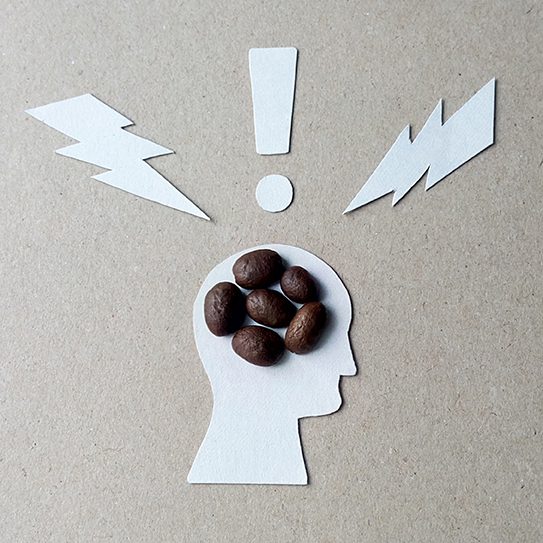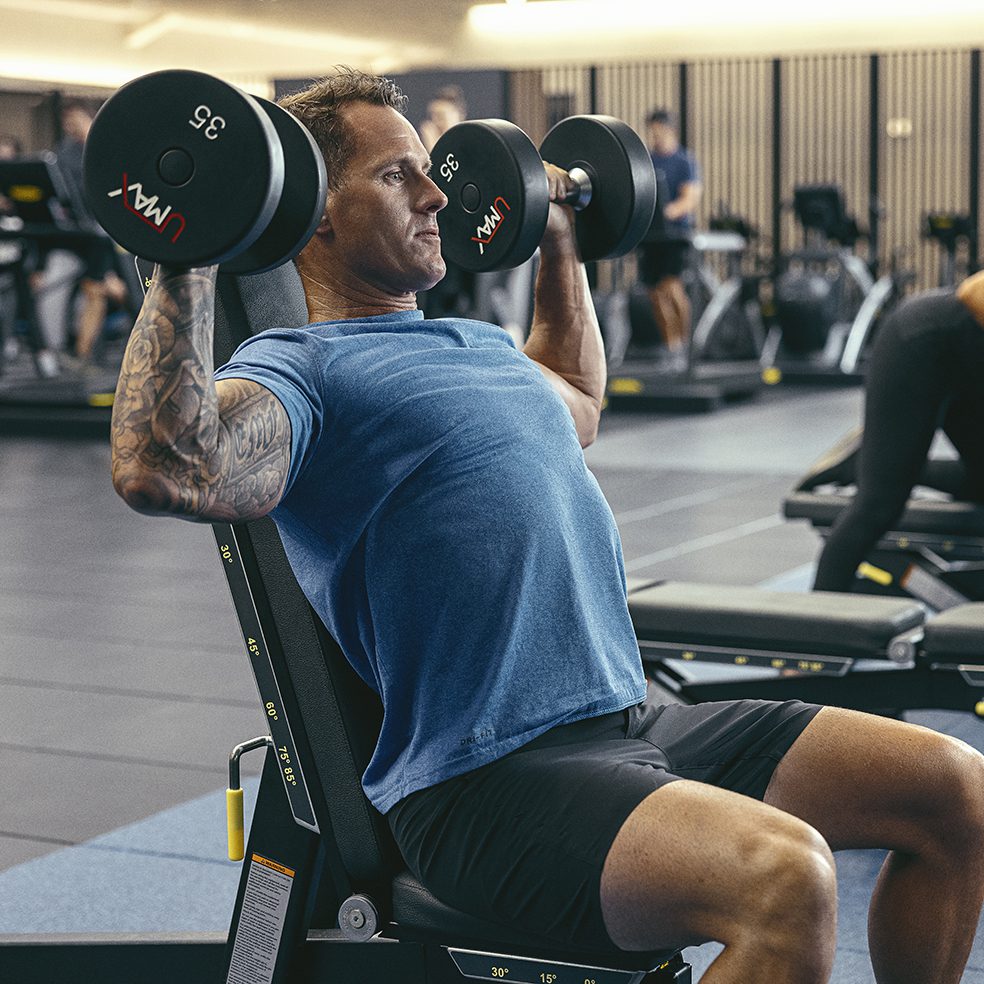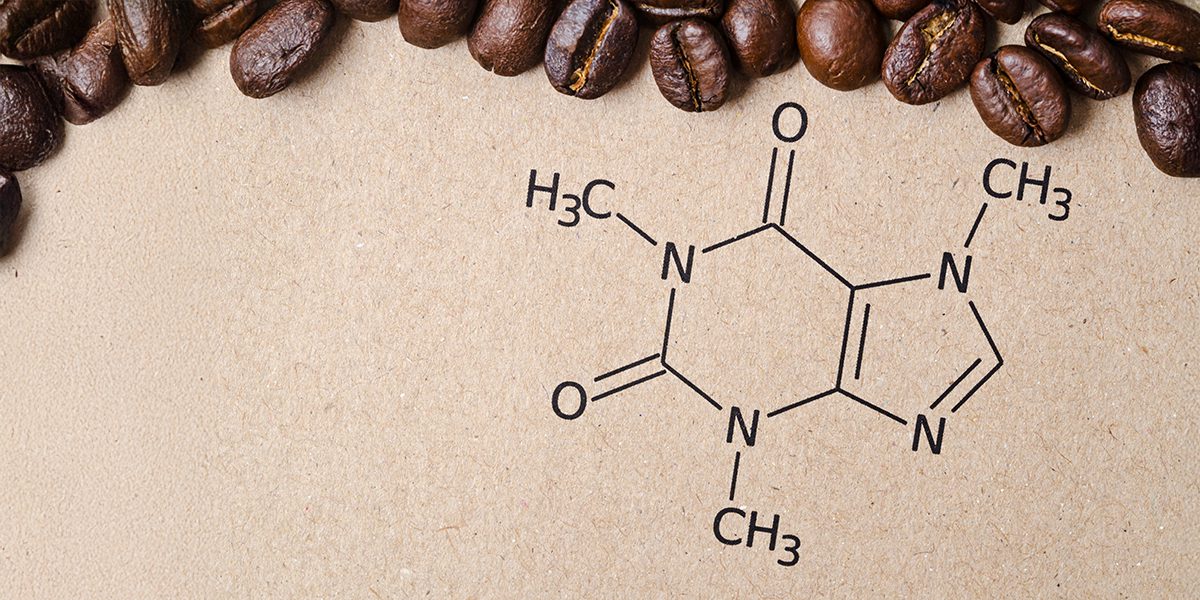WRITTEN BY WOODSIDE DIRECTOR OF TRAINING, JOHN BEANE
This month we are going to be tackling a topic in the nutrition and supplementation category. This is always a risky move due to the constant evolution of nutritional sciences through research and the lack of “one size fits all” solutions. However, we do believe it is important to provide information within our scope of practice and give you the tools to make the best decisions for yourself. If you are interested in learning beyond this information and would like to receive specific recommendations, we would always encourage you to seek out the guidance of a nutrition professional like an RD (Registered Dietician). Our focus here is going to be on the relationship between caffeine and performance.
Caffeine falls into the ergogenic aid category which can be broadly defined as a technique or substance used for the purpose of enhancing performance. Caffeine is one of the most widely consumed stimulants across the globe, commonly used to boost mental alertness, mood, physical performance and stringing together sentences before 9AM. Caffeine is found in beverages like coffee and tea, as well as in various supplements, and is an easily accessible ergogenic aid.
The use of caffeine for performance enhancement has deep historical roots. In the early 1900s, athletes used coffee and other caffeinated substances to improve their focus and endurance during competition (Spriet, 2014). However, it wasn’t until later in the 20th century that caffeine became recognized as a legitimate performance-enhancing supplement. This recognition was bolstered by a growing body of scientific research that demonstrated its efficacy in increasing stamina and mental clarity (Graham, 2001). In 2004, the World Anti-Doping Agency (WADA) removed caffeine from its list of banned substances, further cementing its role in competitive sports (WADA, 2004).
Today, caffeine stands as one of the most thoroughly studied supplements in sports science. The goal of this article is to explore caffeine’s role in enhancing performance, delving into its mechanisms, forms, benefits and potential risks. We will provide evidence-based insights for athletes and fitness enthusiasts looking to optimize their performance by utilizing caffeine.
THE PHYSIOLOGY AND MECHANISM OF CAFFEINE METABOLISM
Caffeine’s primary effect is its action as a central nervous system stimulant. It achieves this by blocking adenosine receptors in the brain, which ordinarily promote relaxation and fatigue. By inhibiting this action, caffeine increases the release of neurotransmitters like dopamine and norepinephrine, both of which enhance mood, alertness and focus (Fredholm et al., 1999). Upon ingestion, caffeine is rapidly absorbed in the gastrointestinal tract, typically reaching peak blood concentrations within 30-60 minutes. This is terrible news for your training partner that shoves two scoops of pre-workout in their mouth as they’re leaving the locker room before training, unless the goal is a super intense drive home. Once absorbed, caffeine is metabolized by the liver via the cytochrome P450 enzyme system, primarily through the enzyme CYP1A2. This process breaks caffeine down into three metabolites—paraxanthine, theobromine and theophylline—all of which contribute to its stimulant effects (Graham, 2001). The speed of metabolism can vary greatly between individuals, with genetic factors playing a significant role in determining how quickly caffeine is broken down and cleared from the system (Cornelis et al., 2006).
FORMS OF CAFFEINE FOR SUPPLEMENTATION
Caffeine is available in several forms, each of which offers unique benefits depending on an athlete’s preferences or competition demands. Caffeine anhydrous, a dehydrated form commonly found in performance supplements, is favored for its rapid absorption and potent effects (Spriet, 2014). As always, be careful with these because caffeine amounts can be highly variable and take cautions when you see ingredients like “proprietary blend.”
Traditional caffeinated beverages like coffee and tea provide a slower, more sustained release of caffeine, making them ideal for longer-duration events or everyday consumption. Side note: if you’re trying to hit a specific amount of caffeine this can be dicey due to processing, type, etc. A cup of coffee can have a huge range of caffeine dependent on the source. Some athletes opt for caffeine gum or chewable forms, which allow for fast absorption and are especially useful in endurance sports (Guest et al., 2021).

Less common but still utilized are caffeine patches and sprays, which offer transdermal absorption and are helpful for individuals who experience gastrointestinal issues when ingesting caffeine orally (just don’t confuse it with your deodorant!). Energy drinks and gels, frequently used in endurance events, combine caffeine with carbohydrates, providing both stimulation and energy replenishment (Ganio et al., 2009).
THE BENEFITS OF CAFFEINE IN PERFORMANCE
Research supports several key performance benefits of caffeine, including:
- Increased Endurance: Caffeine can delay the onset of fatigue, allowing athletes to sustain performance over extended periods of time (Doherty & Smith, 2004).

- Enhanced Mental Focus: By boosting alertness and reducing the sensation of fatigue, caffeine enhances mental clarity, which is particularly useful in sports requiring quick decision-making (Spriet, 2014).
- Improved Strength and Power: Studies indicate that caffeine can increase motor unit recruitment, contributing to greater power output and improved strength performance in high-intensity activities like sprinting and weightlifting (Grgic et al., 2020).
- Fat Oxidation: Caffeine promotes the use of fat as a fuel source, potentially sparing glycogen reserves during prolonged physical activity (Graham, 2001). The numbers here are pretty minimal but, in some situations, every little bit counts.
THE DETRIMENTS OF EXCESSIVE CAFFEINE CONSUMPTION
Despite its benefits, excessive caffeine consumption can lead to several adverse effects, such as:
- Anxiety and Restlessness: High doses of caffeine may cause jitteriness and exacerbate anxiety, especially in individuals sensitive to stimulants (Fredholm et al., 1999).
- Sleep Disruption: Caffeine’s stimulating effects can interfere with sleep, particularly when consumed in the late afternoon or evening (Clark & Landolt, 2017).
- Gastrointestinal Distress: Some individuals experience stomach discomfort or nausea, particularly when consuming caffeine in concentrated forms like anhydrous caffeine (Maughan, 2014).
- Tolerance and Dependence: Over time, regular caffeine use may lead to tolerance, requiring higher doses to achieve the same effects. Additionally, withdrawal symptoms such as headaches and irritability can occur when caffeine intake is abruptly reduced (Juliano & Griffiths, 2004).

RECOMMENDATIONS FOR CAFFEINE AND PERFORMANCE
When it comes to optimizing caffeine use for performance, the International Society of Sports Nutrition (ISSN) provides evidence-based guidelines that can help athletes enhance their performance while minimizing risks. According to the ISSN, the recommended dose for most individuals is between 3-6 mg/kg of body weight, taken approximately 30-60 minutes before exercise (Goldstein et al., 2010). Lower doses, around 2-3 mg/kg, may still be effective for individuals who are more sensitive to caffeine or new to its use (Goldstein et al., 2010).

Timing is crucial, as caffeine reaches its peak effects around 45 minutes after ingestion, and athletes should avoid consuming it too close to bedtime to prevent sleep disturbances (Clark & Landolt, 2017). It’s important to note that individual responses to caffeine vary, largely due to genetic differences in the metabolism of caffeine through the CYP1A2 enzyme. Athletes should experiment with different doses and forms of caffeine to find what works best for them. Furthermore, cycling caffeine use—taking periodic breaks—can help prevent tolerance and maintain its effectiveness over time (Spriet, 2014).
CONCLUSION
Caffeine remains one of the most reliable and well-researched performance-enhancing supplements available today. When used appropriately, it can enhance endurance, strength, mental focus and fat metabolism, providing athletes with a competitive edge. However, moderation is crucial, as excessive consumption can lead to side effects such as anxiety, sleep disruption, gastrointestinal distress and attending a monster truck rally by mistake. Following evidence-based guidelines like those from the ISSN can help everyday athletes maximize the benefits of caffeine while minimizing its risks. Ultimately, personalizing caffeine intake to individual needs and responses is key to ensuring optimal performance.
Our team of Trainers can help you create a plan for mindfully incorporating caffeine into your fitness routine. To learn more click here or email us.
References
Clark, I., & Landolt, H. P. (2017). Coffee, caffeine, and sleep: A systematic review of epidemiological studies and randomized controlled trials. *Sleep Medicine Reviews*, 31, 70-78. https://doi.org/10.1016/j.smrv.2016.01.006
Cornelis, M. C., El-Sohemy, A., Kabagambe, E. K., & Campos, H. (2006). Coffee, CYP1A2 genotype, and risk of myocardial infarction. *JAMA*, 295(10), 1135-1141. https://doi.org/10.1001/jama.295.10.1135
Doherty, M., & Smith, P. M. (2004). Effects of caffeine ingestion on rating of perceived exertion during and after exercise: A meta-analysis. *Scandinavian Journal of Medicine & Science in Sports*, 15(1), 69-78. https://doi.org/10.1111/j.1600-0838.2004.00393.x
Fredholm, B. B., Battig, K., Holmen, J., Nehlig, A., & Zvartau, E. E. (1999). Actions of caffeine in the brain with special reference to factors that contribute to its widespread use. *Pharmacological Reviews*, 51(1), 83-133. https://doi.org/10.1124/pr.51.1.83
Ganio, M. S., Klau, J. F., Casa, D. J., Armstrong, L. E., & Maresh, C. M. (2009). Effect of caffeine on sport-specific endurance performance: A systematic review. *Journal of Strength and Conditioning Research*, 23(1), 315-324. https://doi.org/10.1519/JSC.0b013e31818b979a
Goldstein, E. R., Ziegenfuss, T., Kalman, D., Kreider, R., Campbell, B., Wilborn, C., … & Antonio, J. (2010). International Society of Sports Nutrition position stand: Caffeine and performance. *Journal of the International Society of Sports Nutrition*, 7(1), 5. https://doi.org/10.1186/1550-2783-7-5
Graham, T. E. (2001). Caffeine and exercise: Metabolism, endurance and performance. *Sports Medicine*, 31(11), 785-807. https://doi.org/10.2165/00007256-200131110-00002
Grgic J, Grgic I, Pickering C, Schoenfeld BJ, Bishop DJ, Pedisic Z. Wake up and smell the coffee: caffeine supplementation and exercise performance—an umbrella review of 21 published meta-analyses. Br J Sports Med. 2020;54(11):681–8.
